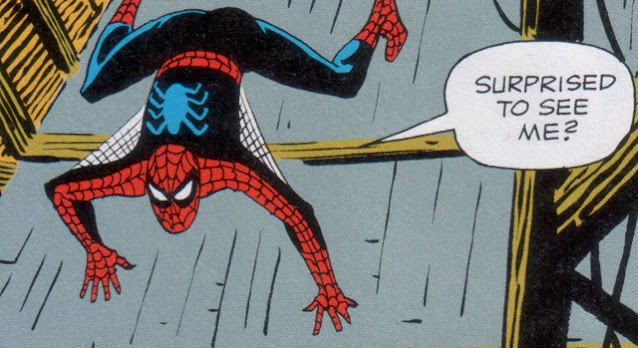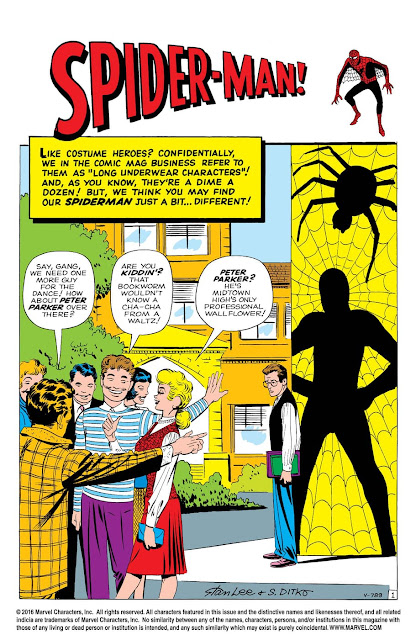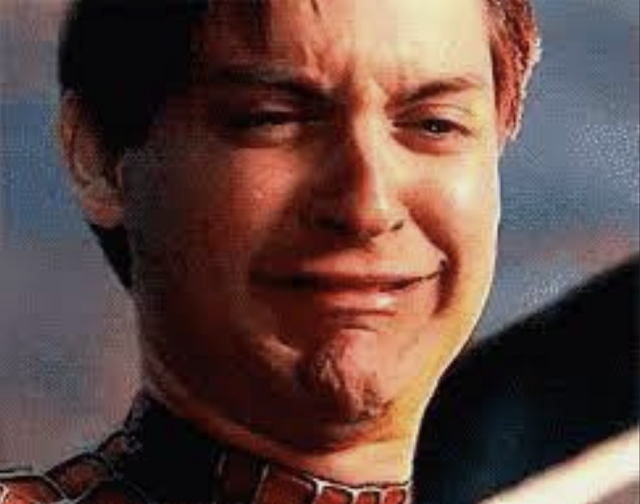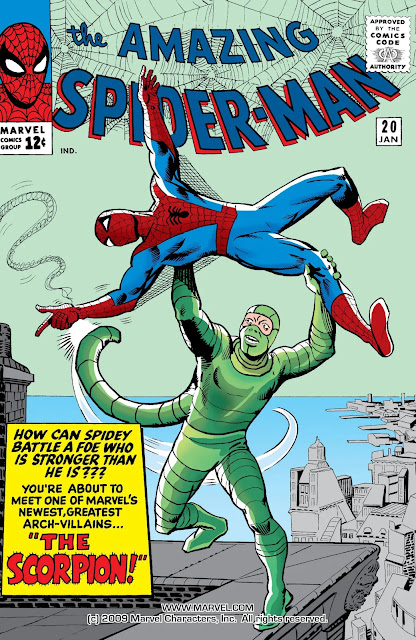Let's talk about How Bad An Idea This Is and In What Ways.
This... creature, in case you do not already know. is the (theoretical) daughter of Wonder Woman. Or, as the Crimes Against Comics Division calls her, "Tom King's rap sheet, page #74."
Tom King is DC"s current exemplar of the Hot Young Auteur From The Outside World. It's one of DC's real-world tropes. Such a person:
has some sort of outside credentials the company thinks brings gravitas;
is imagined by DC to have a following of readers independent of the characters they are writing;
is give near carte-blanche to upset the applecart and take characters in New (unwise) Directions;
usually has a distinct style that they adapt characters to, rather than the other way around.
He's not the first and you can probably list them better than I. As the song lyrics go, "Such as —Wwhat d'ye call him, Thing'em-bob, and likewise—Never-mind; and 'St,'st, 'st, and What's-his-name, and also You-know-who; but the task of filling up the blanks, I'd rather leave to you."
So, aa a dear friend of mine once said, "Let's start with your clothes."
 |
| I can only assume her civilian job is as a yoga teacher. |
Judges...?
 |
| Thank you, Judges. Expertly put. |
I only wish Blockade Boy were still with us to give his reaction to this monstrosity. Tom King mentioned in an interview that he used his 12-year-old daughter's interest in Wonder Woman as a reference point (just about the only positive thing he did say). Well, it sure looks like a 12-year-old designed that costume. "Y'know what's even COOLER than a magic lasso? THREE magic lassos!"
 |
| After all, a girl can never have too many ropes. |
Yeah, no; she LITERALLY has three magic lassos. What could be more practical in battle? One for the left hand, one for the right hand, and one for, um.... Let's play it safe and say "one for dragging".
 |
| I'm just going to assume her inevitable death by Isadora Duncan ia a future Fixed Point in time. |
I'll leave aside the stupidity of that, which needs no belaboring. I will take a moment to linger on her hilarious (and surely dangerously sharply-pointed) heart-shaped breast-plate (which will CERTAINLY be lamp-shaded as such at SOME point,
 |
"She wears her heart on her sleeve.
Well, maybe not her sleeve, exactly...."
< panel of her torso in chiaroscuro>
See, I can write bad comic book dialog just like the pros. |
Trinity = Love, you see. Oh. Oh, I'm sorry, did I forget to mention her name? It's TRINITY. You know, like in Christianity's creakily literal interpretation of Genesis 18-19 (et sim.)
 |
Obviously, we have Augustine to blame for this,
Aristotle would have slapped him silly had he been there to do so. |
It is stunningly tone-deaf that (even) Tom King would have Greek Olypmianist Diana give her daughter a name (1) that's an English abstract noun and (2) so inextricably associated with an incompatible (and historically hostile) religion. Even a comic book geek should realize that's the primary evocation of the word "trinity".
 |
| Maybe there simply isn't any "Christianity" per se in the DCU. But there is always Christmas, right, so doesn't there have to be Christianity? Otherwise, how would machine gunners lure Wonder Woman onto roottops? |
But in using the name King is trying, of course, to evoke the "DC Trinity" (i.e., Superman, Batman, Wonder Woman). Which, well, I hate to have to resort to such an over-used and trite modernism as "cringe". But.. it's cringe. Cringe-y? Let's go old school and call it "mortifying awkward to outsiders " (which I suppose is why people coined the term "cringey").
The use of "trinity" to describe DC's three tip-top-tier heroes has always been tacky, due to its religious associations. But I've usually turned a blind eye to it for several reasons.
First, there are so many people who don't know any better and don't think anything of it. I don't actually encourage the dominance of the shadow of historical Christianity over modern culture and thought, and it's an example of people kind of forgetting what 'trinity' originally meant, well... so be it, I guess. I don't consider its usage "sacrilegious"; it's just tacky.
Second, call me old-fashioned, but I'm still conscious of how artificial a construct DC's "trinity" is. Real world references to it are one thing but any in-universe references are painfully forced. The "trinity", remember is entirely a post-Crisis concept, in which DC decided to elevate a re-launched Wonder Woman into a tier which previously included only Superman and Batman (and by extension Robin). I am not saying this was a bad idea, per se, but it comes with challenges. Much of post-Crisis disappointment in what's been done with Wonder Woman stems from how the bar has been raised for the character, perhaps beyond a point the concept can reach.
Besides, DC blew its chance to do the obvious in a post-Superfriends era: create a QUATERNITY, with both Wonder Woman and Aquaman raised to the top tier.
 |
| DC, you had a generation (or more) prepped from childhood to view this a quarternity of top-tier iconic heroes and you wasted the opportunity. You are incredibly good at wasting opportunities. |
They are kinda/sort slow-rolling that nowadays, but Aquaman is sometimes as much "over there" as he is "up there" in the heroic hierarchy. I suspect the lingering hand of Pope Innocent III, whose Fourth Council of the Lateran rejected the concept of the Quaternity in 1213.
Third, there's not really a much better term. "Triumvirate" doesn't work because that refers to three men etymologically, and to political rulers, a very bad connotation indeed. "Trio" is a musical group, "triad" a musical chord", "troika" is too Commie-sounding, "ternion" is AWESOME but no one without pince-nez is going to use it, etc.
 |
| "Trigon", unfortunately, was already taken. |
But, as stated, while I'll endure its use in our world, its use in-universe is unacceptable. And the idea that Wonder Woman would name her daughter that? Honestly, it's the most "cringey" fan-ficish thing I've seen since I don't know when.
 |
| I'd have to give it some thought. |
Add to this the "me-too!-ism" of it all. Superman and Batman have children now, so Wonder Woman has to! Because rather than have her, gods forbid, be her own person, we have to have her mimic Superman and Batman in order to remain at their level.
It's a modern day mutation of the Dynastic Centerpiece Model, you see. We still WANT Kid Sidekicks but we feel bad nowadays about heroes picking them up at circus fire-sales, dressing them in bright colors, and throwing them at gun-wielding gangsters. Plus, so many readers nowadays aren't children but rather HAVE children that we want heroes who share that condition so we can continue to identify with them. So now the craze is for our heroes to have children who are way older than they should be, whom they dress in bright colors and throw at gun-wielding gangsters. But it's their own children, so it's okay.
 |
| Therefore our only actual sensible sane responsible adult iconic superheroes are Hal and Barry. Just you think about that. |
So, how IS Wonder Woman's child inappropriately-old already? Oh, that's easy.... she's hasn't been born yet. This is a FUTURE person. From the FUTURE. Where fashion has gone to hell, apparently.
Yes, it just keeps getting worse and worse. It's another "possible future that's definitely going to happen" that one writer creates and fans takes as gospel, because well, we actually like pretend this stuff makes sense, rather than just "whatever nonsense the most recent Auteur was allowed to spit out". No offense to Mark Waid, but DC's readership is STILL in collective therapy from Kingdom Come. So, rather than do the work, King is just skipping to the answers in the back of the book.
Well, this is wrong on so many levels. I'm going to pass over the obvious ones that come from this approach. We've all seen them before and can identity them easily enough. I'm just going to point out the irony of taking this approach to creating WONDER GIRL. The only reason there was ever a Wonder Girl character separate from Wonder Woman to begin with was because sloppy editors/writers at DC weren't paying any attention to the fact that, when they created Teen Titans, the character Wonder Girl WAS WONDER WOMAN as a youth (in the same way Superboy was Superman). DC has spent 60 trying to fix that mistake (still unsuccessfully). So, yeah; having Wonder Girl be from a different time period? Not a great plan, historically.
 |
Longtime readers know there is only one writer who could have cared so little about continuity.
Until now. |
And that brings us to our final point. DC's slash-and-burn approach to Wonder Girls. To be fair, they have this approach to a LOT of characters.
 |
| Some versions may deserve to be slashed and burned, however. |
 |
| No matter what snow they shovel at you now, these characters were not made to work with one another. They were made to supplant one another. |
Kid sidekicks/youth heroes (and the broader heroic dynasties they are part of) are at the heart of conflict between two opposite tendencies at DC. DC often mixes up the concepts of heroic "legacies", to show that heroism is a tradition that is carried on rather than dying with an individual, and "replacism", the avid rush to ditch any existing version of a character for a newer version that The Kids or a Different Audience Might Like Better.
 |
| POOCHIE IS FROM SPACE AND HE'S THE NEW GREEN LANTERN |
When you have all the copies and younger duplicates lying around, it becomes VERY tempting to the powers that be to ditch That Old Character They Didn't Create and Feel Constrained By and Don't Have Creator Rights To. The very tools that are supposedly created to respect the past are used to kill it.
And Replacism has a strong pull in an era given to narrowcasting rather than broadcasting; where we make a lot entertainment tailored to smaller varied audiences rather than a few shows designed to appeal to a broad audience. The classic DC icons are "broadcast" icons designed to appeal broadly and they are correspondingly generic.
 |
| Almost interchangeable. |
The more people who can identify with Mr./Ms. Secret Identity, the fewer people can identify with him/her CLOSELY. Hey, I'm Modern! I don't want your generic old white guy superheroes, like stupid brain-damaged Hal Jordan! I want a Green Lantern I can IDENTIFY with, who's like me. Somebody gay. Blond. Left-handed. Independent. With fashion flair. Who despite being not too young, looks REALLY good for his age. And likes dark-haired guys named Alex.
 |
| Okay, DC. You win this round. |
But this can lead to increasingly rapid turnover/proliferation in a character that instead leaves everyone with next to nothing. Instead of one Green Lantern we can all see a little of ourselves in every month, we each get one Green Lantern we could see a lot of ourselves in... if we ever saw them, which we don't, because there are 87 of them.
In recent years, DC (or certain forces at DC) have been smarter about this issue and drawn a line in the sand. Despite taking guff for it, for example, Geoff Johns rolled back the turnover-cascade that had taken over Green Lantern and Flash by re-establishing Hal Jordan and Barry Allen as those mantle-bearers.
 |
A task they handled easily, even after being dead for twenty years, because making it look easy is what they do.
|
One can complain about Johns' bringing back "his generation's version" of those characters, but the choice is defensible as where the problem started. If you draw the firebreak anywhere else, the choice seems arbitrary and the problem might take root again. His recent work with reintroducing kid sidekicks and the Justice Society is also his attempt to re-inject the concepts of Dynasty and Legacy to help stabilize how DC deals with balancing past, present, and future.
"Trinity" is... pretty much that opposite of that. She's just The Latest Author's Version of Wonder Girl, since I guess we've already consigned Yara Flor to the Discount Bin of discarded versions of Wonder Girl.
 |
| Remember her? Me, neither. I literally have never seen her in anything. At least her costume is marginally less ridiculous than Trinity's. |
Except this one comes with the cheap trick of being Wonder Woman's daughter, which King clearly hopes will insulate her from eventual elimination (as it has odious Damian and the incomprehensible and blandly controversial Jon Kent).
It's a headline-grabbing, de-stabilizing pyrotechnic thrown out by an author who can't write a mystery, so instead he 'subverts expectations". Well, what I expected from the Dawn of DC was certainly better than "Trinity" so consider my expectations subverted, Mr. King.














































